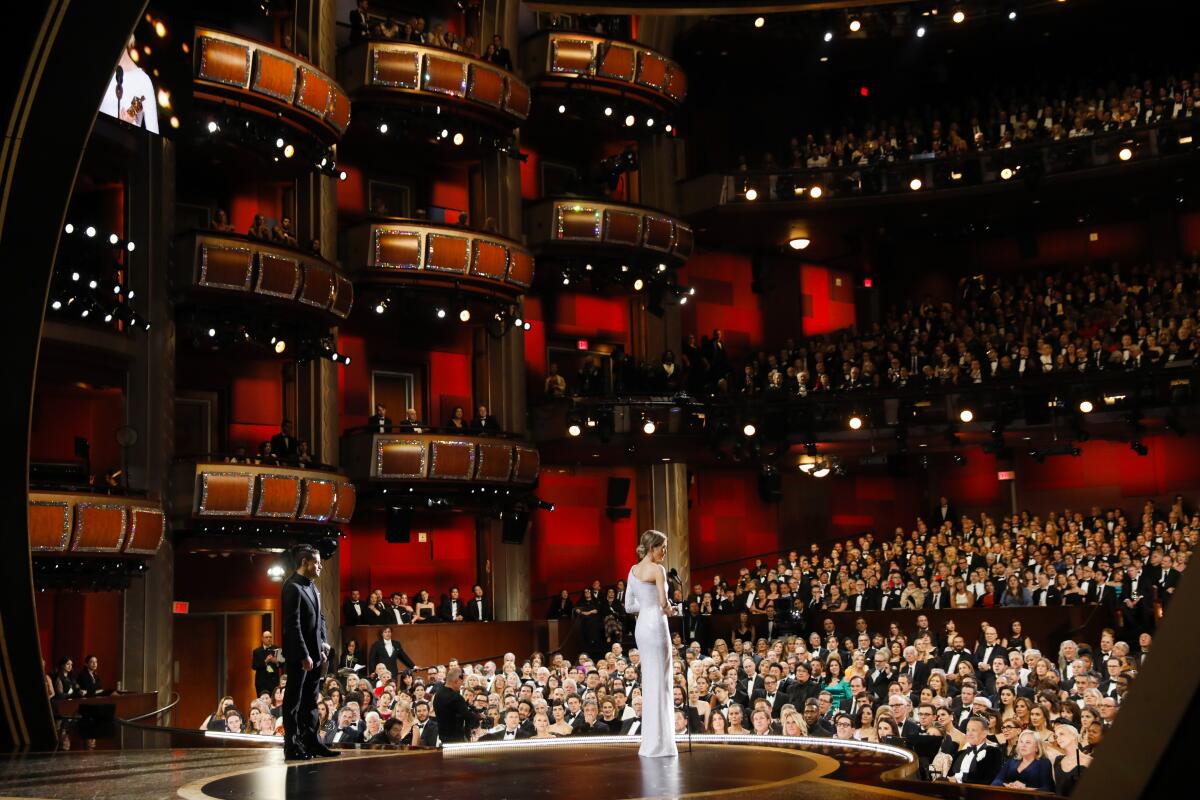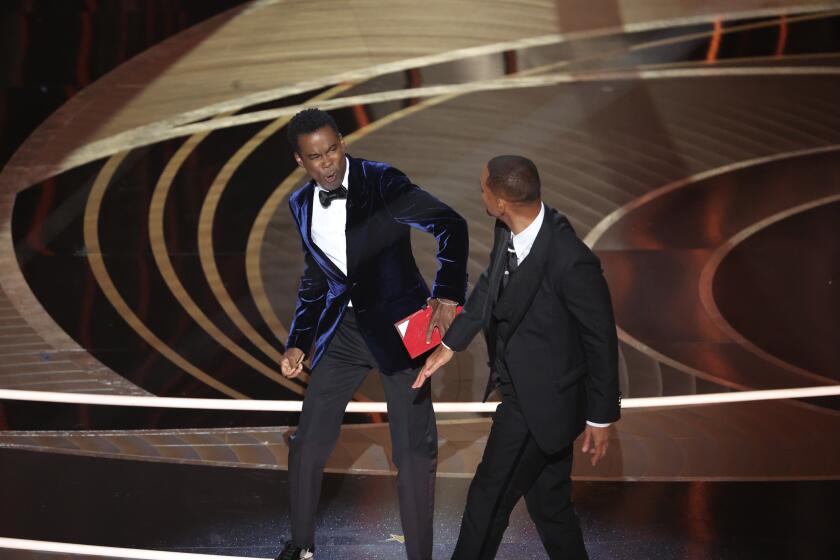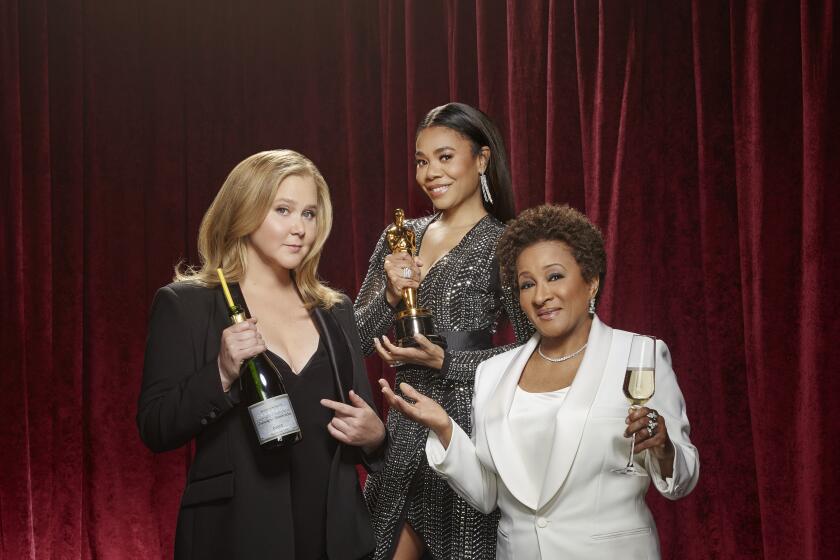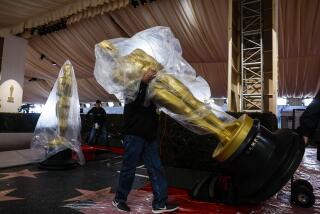Oscars COVID protocols, explained: Who is vaxxed, masked and distanced?

- Share via
The Omicron surge is receding. Mask mandates are ending. And after two years of Zoom fatigue and social distancing, the motion picture academy is determined to bring the glitz and glamour of the Before Times back to this year’s Oscars.
Sunday’s Academy Awards will look far more normal this year than they did last year, when the ceremony was relocated to Union Station and, with vaccines still rolling out, the audience was capped at just 170 mostly masked attendees.
The event is returning to its home in the Dolby Theatre. A-listers will once again strut the red carpet. Parties that have been canceled for the last two years will be back in full swing. And you’ll see a whole lot fewer masks on the faces of the beautiful people than you did last year.
‘CODA’ became a feel-good best picture winner and Jessica Chastain triumphed for ‘Tammy Faye,’ but all was overshadowed by best actor winner Will Smith.
Still, as fervently as everyone might wish it to be so, the COVID-19 pandemic is not yet over, so Oscar planners are taking steps to try to ensure that attendees remain safe — and that Hollywood’s biggest night doesn’t turn into Hollywood’s biggest super-spreader event.
There is reason for caution. The recent British Academy Film Awards, held in London on March 13 amid a COVID-19 surge, are now suspected of having led to dozens of infections, including among some of this year’s Oscar nominees, such as “Belfast” director Kenneth Branagh and the film’s Ciarán Hinds, a supporting actor nominee.
But while BAFTA attendees were required only to provide a negative antigen test and masks were largely optional, the Oscars are enforcing stricter COVID-19 protocols, even as the numbers of both infections and hospitalizations in Los Angeles have dropped sharply in recent weeks.
Here are three steps the film academy is taking:
Tests and vaccinations
Those attending the Oscars will be required to submit two negative PCR tests as well as proof of vaccination, the academy has said. Presenters and performers at the Oscars will not be required to be vaccinated but will have to show that they have recently tested negative for the virus.
In an email sent Friday, the academy said that anyone who is within a five-day window of a positive test will not be permitted to attend the Oscars under any circumstances.
Regina Hall, Amy Schumer and Wanda Sykes aren’t the first women to host the Academy Awards. But here’s why their co-hosting gig is historic.
Masks and distancing
Members of the media covering the red carpet will have to wear masks, as will attendees inside the Dolby who are seated outside of the orchestra section. While the theater normally holds more than 3,000 people, attendance will be more limited this year, with some seats being removed to provide greater social distancing.
In its email Friday, the academy strongly recommended that attendees minimize their COVID-related risks in the run-up to the show by “avoiding enclosed and crowded spaces” and limiting extended interactions with people outside of family, friends and colleagues.
Gatherings
As in pre-pandemic times, the week leading up to the Oscars has been packed with in-person gatherings, including Friday’s Governors Awards, and Oscar night itself will see the return of the after-parties of the pre-pandemic era such as the Governors Ball and the Vanity Fair party.
All of these events have instituted their own COVID-19 protocols. But any time crowds are gathered, as we know, there is a possibility the virus could spread.
Still, with the industry eager to turn the page on a pandemic that has upended decades-old business models and crushed the box office, many in Hollywood are desperate to get back to normal. Or at least to settle into a new normal.
“People are ready to leave behind the isolation,” one awards consultant told The Times. “The news out of the BAFTAs was a little concerning, but I think it’d take someone to, you know, actually die to keep Hollywood away from the Oscars.”
More to Read
Only good movies
Get the Indie Focus newsletter, Mark Olsen's weekly guide to the world of cinema.
You may occasionally receive promotional content from the Los Angeles Times.













